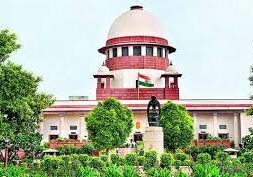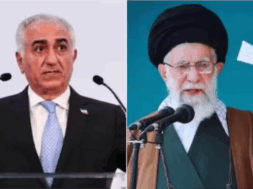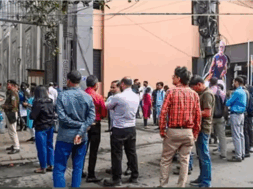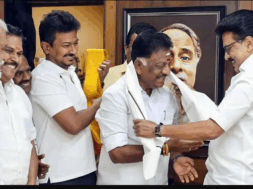
Hearing on Abrogation of Article 370 in J and K Concludes, SC Reserves Order, Lone Files Affidavit
Manas Dasgupta
NEW DELHI, Sept 5: The Supreme Court on Tuesday reserved verdict in the challenge to the abrogation of Article 370 of the Constitution, which gave special status to Jammu and Kashmir (J&K), at the conclusion of the arguments for and against by the advocates after the lead petitioner Mohammad Akbar Lone filed an affidavit swearing allegiance to the Constitution of India.
The National Conference leader filed the affidavit following an order of the Supreme Court. Lone was asked to file the affidavit after the Centre’s top law officer alleged that he had raised pro-Pakistan slogans in the Jammu and Kashmir Assembly in 2018.
A five-judge Constitution Bench headed by Chief Justice D.Y. Chandrachud heard extensive arguments by both the petitioners and the government over a span of sixteen days.
The five-judge constitutional bench had on Monday directed Lone to file the affidavit. “We want to have it from Akbar Lone that he unconditionally accepts that Jammu and Kashmir is an integral part of India and that he abides by and owes allegiance to the Constitution of India.”
Justice Chandrachud said when Lone has approached the top court under Article 32 of the Constitution, he has to believe in sovereignty of the nation and that Jammu and Kashmir is an integral part of India. During Monday’s argument, Solicitor General Tushar Mehta, representing the Centre, had said Lone must say he opposed secessionist activities and terrorism by Pakistan in Jammu and Kashmir. Attorney General R Venkataramani had said, “He (Lone) wants his fundamental rights to be enforced and then takes a contrary viewpoint.”
Assuring the court that Lone would file the affidavit by Tuesday, veteran lawyer Kapil Sibal, who was representing the petitioner, said he would stop representing Lone if he did not.
Several petitions have been filed challenging the presidential orders of August 5 and 6, 2019 as well as the Jammu and Kashmir Reorganisation Act, 2019, creating two union territories of J and K and Ladakh on the ground that they are unconstitutional.
The petitioners argued that the abrogation was an attack on federalism and a fraud played on the Constitution. They also pointed out that the 2019 Act is unconstitutional since Article 3 does not give the Parliament powers to downgrade federal democratic States into a less representative form such as a Union Territory.
On the contrary, the Union government contended that the abrogation was necessary to completely integrate J&K into the Union of India and that elections in the valley would be conducted as soon as normalcy returns on the ground.
The Bench also raised several pertinent questions during the proceedings — whether the dissolution of the State Constituent Assembly could render Article 370 beyond abrogation, whether the provision forms a part of the Basic Structure of the Constitution, and whether the ambit of judicial review prevents the court from assessing the ‘wisdom’ behind the Union government’s decision to abrogate Article 370.
The apex court had taken up this case for hearing after a delay of almost four years. In March 2020, when the Court last heard the matter, the question was about referring the case to a larger bench but the five judge bench headed by then chief justice NV Ramana had then refused. The case was referred to a five-judge Constitution bench in 2019 by a three-judge bench led by former CJI Ranjan Gogoi.














